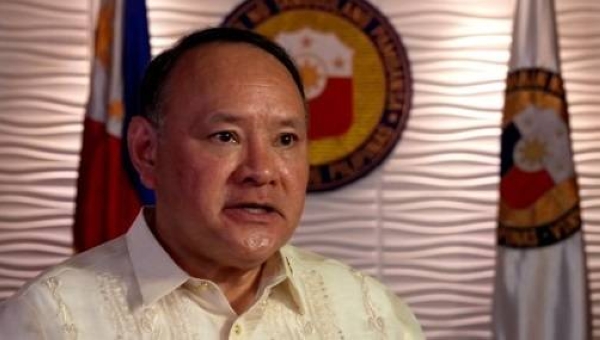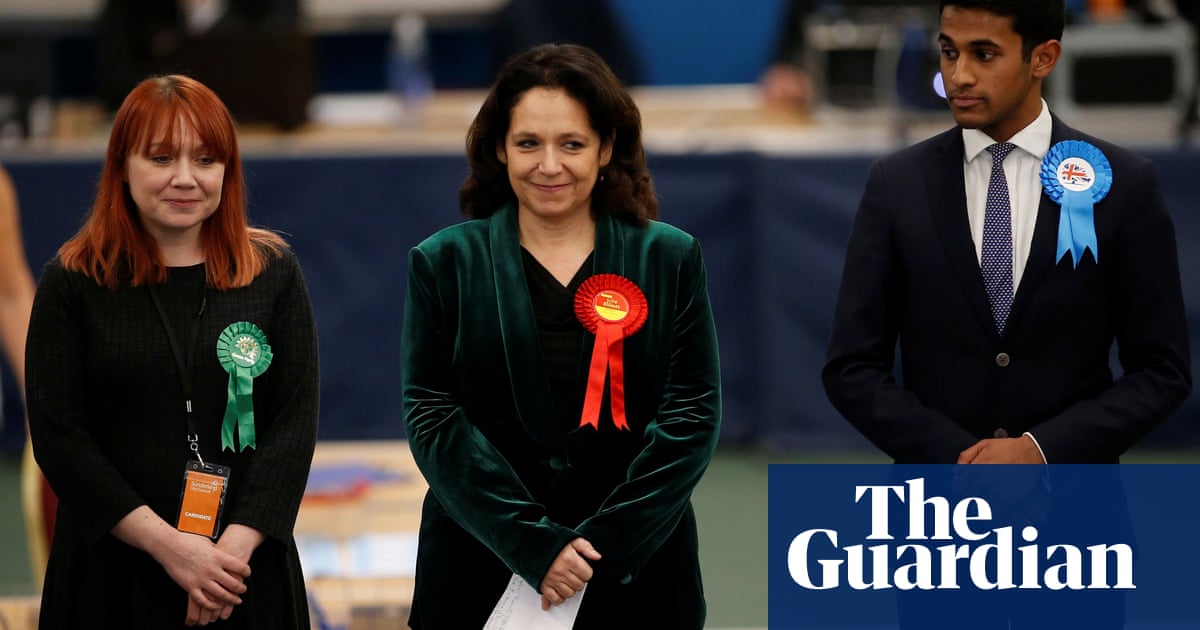
A leading Uyghur activist has accused the Labour government of “falling behind” its allies in failing to stand up to China, after ministers backtracked on plans to push for formal recognition of the country’s treatment of the minority group as genocide.
Speaking after David Lammy’s first visit to China as UK foreign secretary, the human rights activist Rahima Mahmut, who has lived in exile in the UK since 2000, said she had hoped there would be a shift in UK policy once the party came into power, including following the US in declaring a continuing genocide in Xinjiang.
“The Conservative governments all those years [had] big words but very little action,” said Mahmut, who is the UK director of the World Uyghur Congress. She has long campaigned against the crackdown on Uyghurs, which several governments and human rights bodies have described as a genocide.
“But, sadly, after Labour came into power I didn’t even hear big words,” she added. “I am very, very disappointed, the community is very disappointed.”
Since 2017, China has swept an estimated 1 million Uyghurs and other minority groups into internment camps, which it called training centres. Hundreds of thousands are believed to still be incarcerated, and in many cases families have no idea about the fate of relatives who had been detained.
Lammy held high-level meetings in Beijing and Shanghai last week during his first visit to China as foreign secretary, as ministers seek to improve engagement and build closer economic ties.
Before the visit, the foreign secretary was under pressure to take a tough line with his Chinese counterpart, Wang Yi, on a range of human rights issues. A statement after the meeting said Lammy discussed the mistreatment of Uyghurs in Xinjiang, in China’s far west.
In opposition, Labour backed a Commons motion that declared China’s conduct genocide and urged the government to seek formal recognition of this through the UN. But a government source told the Guardian last week that “genocide is a determination for competent international courts to decide”.
Mahmut, who has been unable to return to her homeland, speak to family members and whose brother was held in a camp for two years, said the government needed to take action. She called on the UK to follow the US in labelling China’s actions as genocide and stopping the import of goods made through forced labour in the region.
In 2021, an independent and unofficial tribunal led by Sir Geoffrey Nice KC said Uyghurs had been subjected to genocide by China, while the UN concluded the following year that China’s actions could constitute crimes against humanity. Last week, the European parliament passed an emergency resolution censuring China’s repression of the Uyghurs and calling for the release of detainees.
“At the moment [the] UK is falling behind,” said Mahmut.
Lammy’s visit comes days after the UK housing secretary took control over a stalled planning decision for a new Chinese embassy in central London that was initially rejected. Beijing bought the Royal Mint Court site for a new embassy in 2018 for £255m, but has so far failed to gain planning permission.
In 2022, Tower Hamlets council voted unanimously to reject a proposed development to move the existing Chinese embassy to a site opposite the Tower of London on security grounds, adding that the planned size of the embassy was inappropriate for the area.
The Ministry of Housing, Communities and Local Government wrote to Tower Hamlets council on Monday announcing that Angela Rayner, the deputy prime minister, was calling in the applications rather than letting the local authority decide. The letter also says Rayner will hold a local inquiry into the matter, in line with government policy.
Mahmut, who has campaigned against the proposed embassy site alongside local residents and those in exile in Hong Kong, over surveillance concerns, said she was uncertain about what course of action the government would take. “It’s very hard to predict,” she said. “But we will fight until the end.”
Simon Cheng, the founder of Hongkongers in Britain and a former Hong Kong consulate worker who sought asylum in the UK, also felt uncertain about the government’s intervention, particularly as it seeks to improve economic ties with China. Trade between the two countries is worth £110bn a year.
“It’s still a bit uncertain, it’s good to know the central government has stepped in,” said Cheng. “I’m just a little bit unsure about what this really means – either they plan to hold the application … or they might plan to approve it.”
In 2022, China’s consul general in Manchester and five other diplomats returned to China after a pro-Hong Kong democracy demonstrator was beaten up outside the consulate. Fearing for their safety at the time, Hong Kong migrants who fled repression by China called on the then Conservative government to take a bolder stance.
“The exiled community members have very legit concerns about this, and if the UK government approves this project it would give a very wrong and damaging message to Beijing,” said Cheng, who fears the new embassy could result in increased surveillance. “We need to urge the new government to stand tough.”
The housing ministry said a decision would be made in due course. The Foreign Office has been approached for comment.












